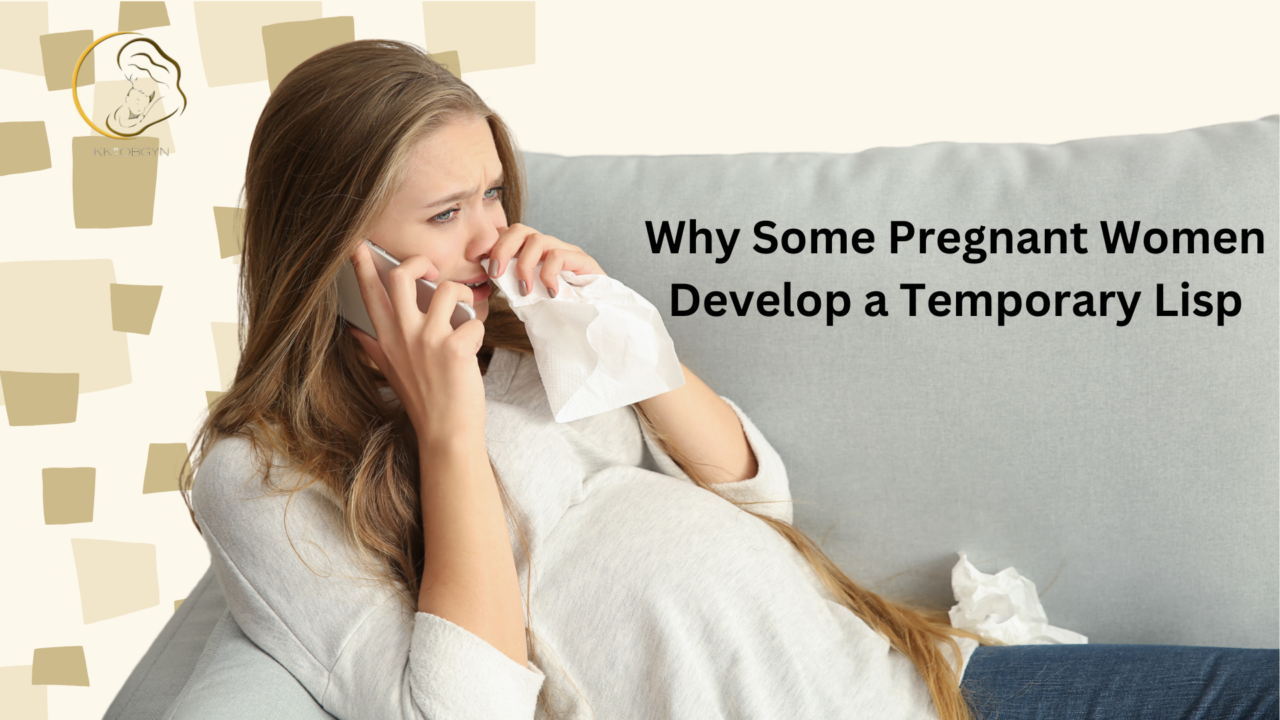Pregnancy brings about numerous physical and hormonal changes, some of which can have unexpected effects. One such unusual phenomenon is the development of a temporary lisp during pregnancy. While not commonly discussed, some pregnant women experience subtle changes in speech, particularly a mild lisp. This condition can be attributed to hormonal shifts, fluid retention, and oral health changes.
Causes of Temporary Lisp in Pregnancy
A temporary lisp during pregnancy is usually caused by a combination of physiological changes affecting the tongue, teeth, and oral muscles. Below are the key factors contributing to this phenomenon:
|
Cause |
Explanation |
|
Hormonal Changes |
Increased levels of estrogen and progesterone affect soft tissues, including those in the mouth, leading to swelling or slight misalignment of oral structures. |
|
Fluid Retention |
Pregnancy-induced water retention can cause slight swelling of the tongue and lips, affecting pronunciation. |
|
Increased Blood Flow |
Higher blood volume can lead to engorged oral tissues, temporarily altering speech patterns. |
|
Oral Health Issues |
Pregnancy-related gum inflammation (gingivitis) and shifting teeth may contribute to speech difficulties. |
|
Muscle Relaxation |
Relaxin, a pregnancy hormone, affects muscles and ligaments, potentially altering tongue and jaw movement. |
How Lisping Manifests During Pregnancy
Pregnant women who develop a lisp may notice changes in their ability to pronounce certain sounds, especially those that require precise tongue placement. Common speech alterations include:
- Difficulty pronouncing “s” and “z” sounds, leading to a mild slurring effect.
- A slight change in tongue placement when speaking.
- Temporary misalignment of teeth, affecting airflow and pronunciation.
- Increased saliva production, which can make speech feel different.
How Long Does It Last?
In most cases, the temporary lisp resolves on its own after pregnancy or shortly after childbirth. The underlying factors—such as fluid retention, hormonal changes, and oral swelling—naturally subside postpartum.
When to Seek Medical Advice
While a mild lisp during pregnancy is generally harmless, certain symptoms may indicate the need for professional consultation:
|
Symptom |
Possible Concern |
|
Persistent Lisp Postpartum |
Could indicate structural or neurological speech issues. |
|
Severe Tongue or Lip Swelling |
May be a sign of an allergic reaction or preeclampsia. |
|
Gum Pain and Bleeding |
Could indicate severe pregnancy-related gingivitis or periodontitis. |
|
Difficulty Swallowing |
Might be linked to thyroid changes or significant fluid retention. |
Managing and Reducing Lisping During Pregnancy
While the condition is usually temporary, certain strategies can help alleviate its effects:
- Stay Hydrated: Reducing fluid retention through proper hydration can minimize swelling.
- Practice Good Oral Hygiene: Regular brushing, flossing, and dental check-ups can prevent gum-related speech issues.
- Adjust Speech Patterns: Speaking more slowly and practicing pronunciation exercises may help mitigate the lisp.
- Use Orthodontic Aids if Needed: If shifting teeth contribute to the lisp, a dentist may recommend temporary orthodontic solutions.
- Monitor Saliva Production: Sipping water or using sugar-free gum can help manage excess saliva.
Conclusion
A temporary lisp during pregnancy is an unusual but explainable phenomenon caused by hormonal shifts, fluid retention, and oral changes. Though usually mild and temporary, understanding its causes can help pregnant women manage any speech difficulties they experience. If the lisp persists beyond pregnancy or is accompanied by concerning symptoms, seeking medical or dental advice is recommended.


